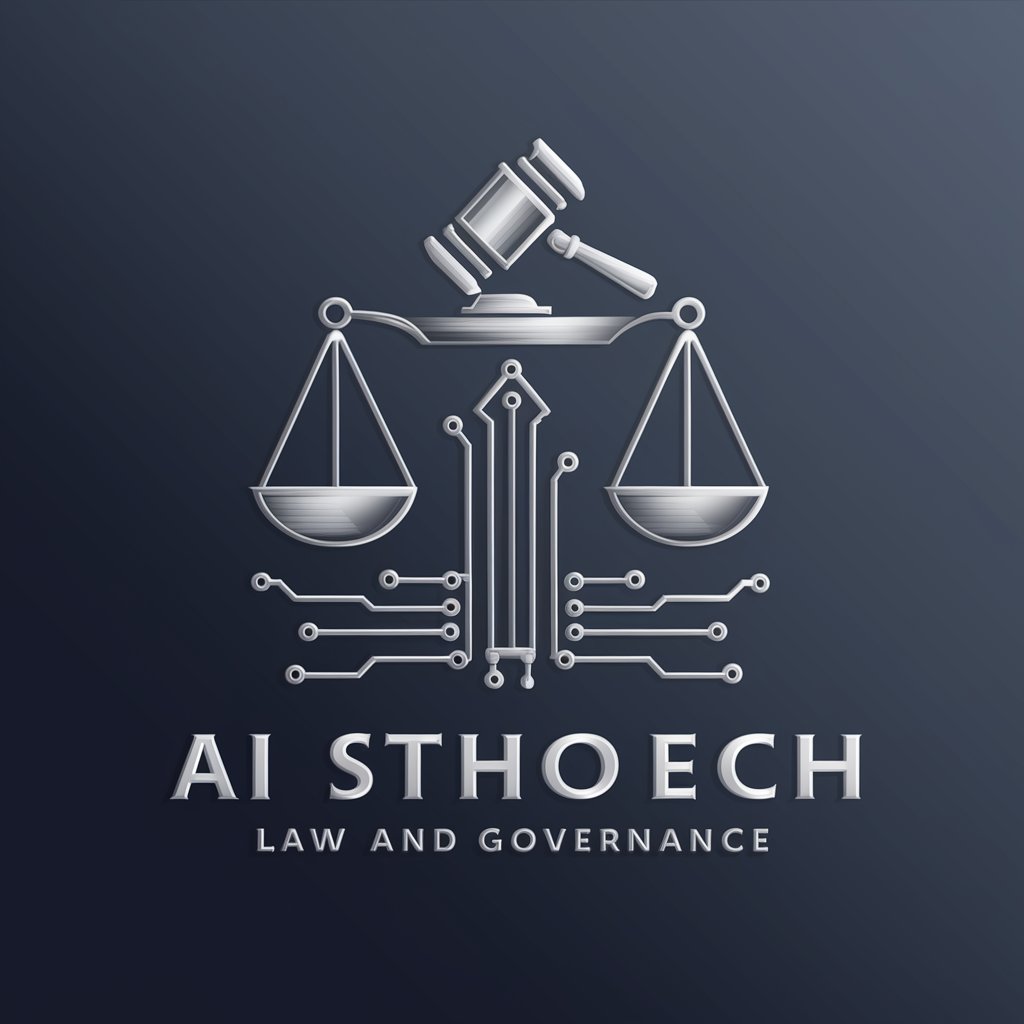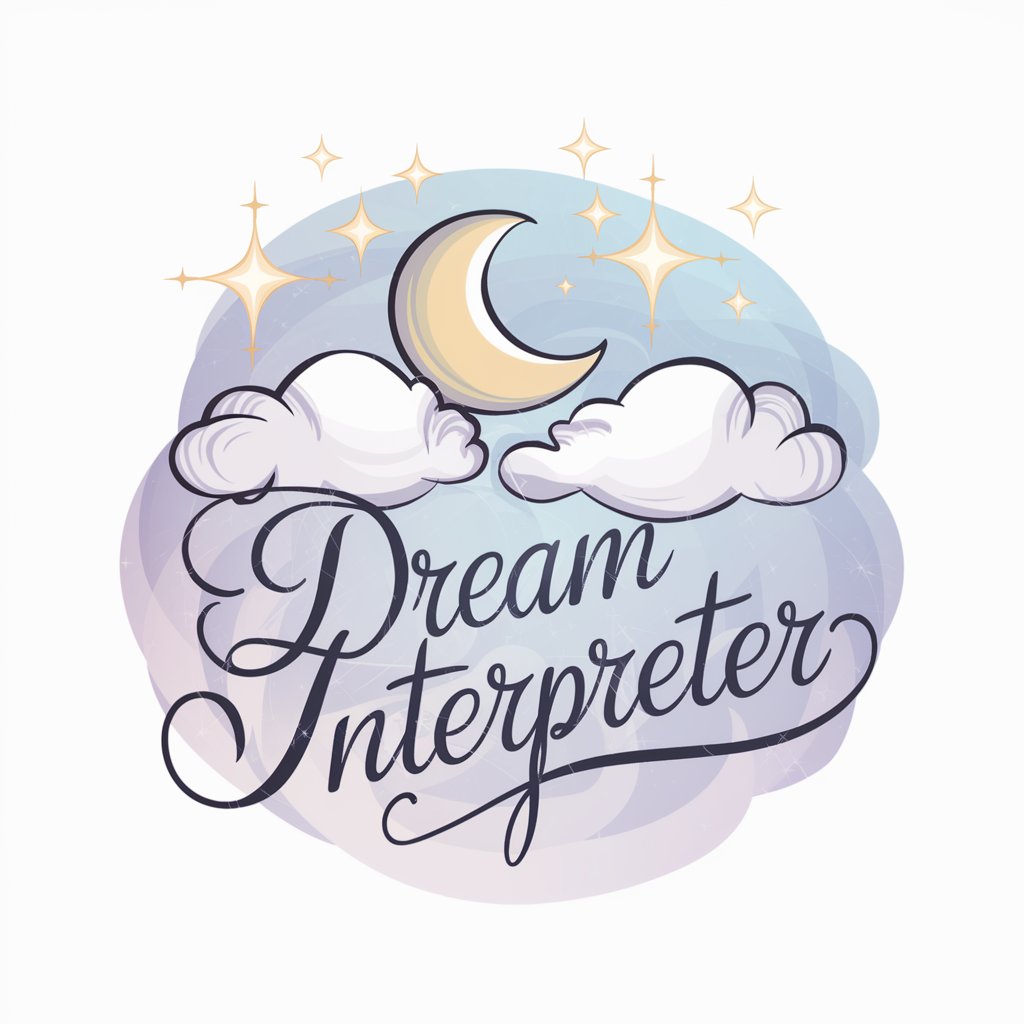AI in Law and Governance GPT - AI-Assisted Legal Insights

Welcome! Let's explore AI's role in law and governance.
Empowering legal professionals with AI.
Explain the impact of AI on modern legal practices...
Discuss the ethical considerations of using AI in governance...
How can AI enhance public policy development...
Analyze the latest trends in AI regulation and law...
Get Embed Code
AI in Law and Governance GPT Overview
AI in Law and Governance GPT is designed to explore and discuss the significant impact of artificial intelligence on legal systems, governance, and public policy. This specialized GPT focuses on providing insights into the ethical, regulatory, and practical applications of AI within legal contexts. It engages in theoretical discussions about the ethical implications of AI, offers analysis on emerging trends, and provides current perspectives on AI law and governance. The aim is to foster an understanding of how AI technologies can be integrated into legal frameworks and governance structures, highlighting both opportunities and challenges. For example, this GPT can discuss the implications of using AI for predictive policing, the ethical considerations of AI judges, or the regulatory challenges posed by autonomous vehicles. Powered by ChatGPT-4o。

Core Functions and Real-World Applications
Ethical and Regulatory Analysis
Example
Exploring the ethical implications of using AI in decision-making processes within the judiciary.
Scenario
A legal scholar researching the fairness and transparency of AI systems used to assess bail applications or parole likelihood.
Insight on AI Integration in Legal Practice
Example
Assessing the impact of AI on contract analysis and legal research.
Scenario
A law firm incorporating AI tools to streamline document review processes, thereby enhancing efficiency and accuracy in legal research and contract management.
Guidance on AI Policy and Governance
Example
Offering perspectives on developing and implementing AI policies within governmental frameworks.
Scenario
A policy maker working on legislation to govern the deployment of autonomous vehicles, seeking to balance innovation with public safety and privacy concerns.
Target User Groups
Legal Professionals
Lawyers, judges, and legal scholars looking to understand the implications of AI on legal practices, ethics, and regulations. These users benefit from insights into AI's role in streamlining legal processes, ensuring fair and transparent use of AI in courts, and staying ahead of legal technological advancements.
Policy Makers and Government Officials
Individuals involved in crafting laws, policies, and regulations governing AI technologies. They benefit from in-depth analyses of ethical considerations, regulatory challenges, and policy frameworks necessary to navigate the complexities of AI integration into public and private sectors.
Academics and Researchers
Scholars and researchers in the fields of law, ethics, technology, and governance interested in studying the intersection of AI and legal systems. This group benefits from theoretical discussions, case studies, and emerging research trends facilitated by the GPT.

Using AI in Law and Governance GPT: A Guide
Begin Your Journey
Start by exploring yeschat.ai for a hassle-free trial experience, no login or ChatGPT Plus subscription required.
Define Your Objective
Identify your specific needs such as legal research, policy analysis, or drafting documents to tailor the AI's output to your requirements.
Interact Intelligently
Pose clear, concise questions or prompts to ensure the AI understands your query, enhancing the quality and relevance of responses.
Review and Refine
Critically assess the AI-generated content, using it as a preliminary draft or a base for further research and refinement.
Stay Informed
Regularly update your knowledge on AI advancements and legal stipulations to responsibly leverage AI in your legal and governance tasks.
Try other advanced and practical GPTs
Wellness Guide - Dr. Cho 😎
Empowering Your Health Journey

Calligraphy Changer (korean Art style)
Transform Photos into Korean Art

Sports Analytics
Powering sports insights with AI

Analytics Ace
Unleash Insights with AI-Powered Analytics

Analytics Mentor
Empowering Analytics Proficiency with AI

Analytics Translator
Turning Data into Dialogue

Immo Suivi Client by ImmoSaas
Empowering Real Estate with AI

Immo Urbain by ImmoSaas
Empowering Urban Evolution with AI

Pixel Art Character Drawer
Craft Pixel Perfection, AI-Enhanced

Dream Interpreter
Unveil Your Dreams' Secrets with AI

Angel Numbers
Decipher Life's Messages with AI

Keyword Extractor
Harness AI for smarter keyword discovery

Frequently Asked Questions: AI in Law and Governance GPT
What is AI in Law and Governance GPT?
AI in Law and Governance GPT is a specialized tool designed to assist with legal research, policy analysis, document drafting, and exploring ethical implications of AI in legal contexts.
How accurate is the AI-generated legal content?
While AI strives for accuracy, it's imperative to review AI-generated content critically. It serves as a foundation for further research, not as a substitute for professional legal advice.
Can AI in Law and Governance GPT replace lawyers?
No, this AI tool is intended to supplement the work of legal professionals by streamlining research and preliminary drafting, not to replace the nuanced judgment and expertise of lawyers.
Is the AI familiar with all jurisdictions?
AI in Law and Governance GPT covers a broad range of jurisdictions but may not have detailed knowledge of specific local laws. Always cross-reference with localized legal resources.
How does this tool stay updated with current laws?
The tool incorporates the latest developments in AI and legal databases, but users should verify the currentness of legal information due to the dynamic nature of law.
